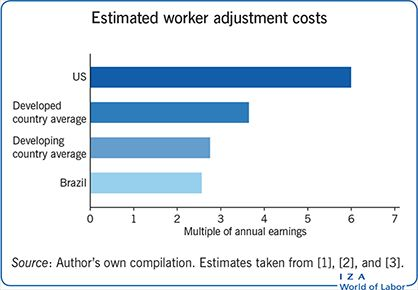Elevator pitch
Economists have shown that international trade increases economic growth, with trade liberalization and integration having characterized the last 50 years. While trade can increase national welfare, recent estimates from both developed and developing countries show that labor market adjustment costs matter. Regulating trade, defined as adding or removing tariffs and other trade barriers, is not the best way to help lower-income workers who suffer from trade-induced losses. Policies that reduce adjustment costs may increase aggregate welfare more than regulating trade flows does.
Key findings
Pros
Trade increases national welfare by lowering prices for consumers, adding product variety, and contributing to economic growth.
If part of a selective and proactive industrial policy, regulating international trade can help developing countries support exporting firms and workers.
Reducing adjustment costs can increase the welfare gains from trade in both developed and developing countries.
Cons
Trade liberalization leads to reallocation of workers and resources across sectors and therefore imposes significant adjustment costs on workers.
Even if trade liberalization increases national welfare, the costs can be highly concentrated geographically.
Regulating international trade to recover lost jobs may not be effective because mobility costs are significant.
Failure to address concentrated losses can undermine popular support for trade.
